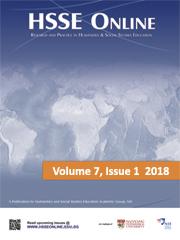A Dialogic Teaching Approach: Talk Moves to Deepen Students’ Understanding in the Geography Classroom
Lim Yi Xuan Debi (National Institute of Education) Keywords Geography Junior College Secondary School dialogic teaching talk moves interaction pattern Abstract In most Singapore classrooms, lessons

